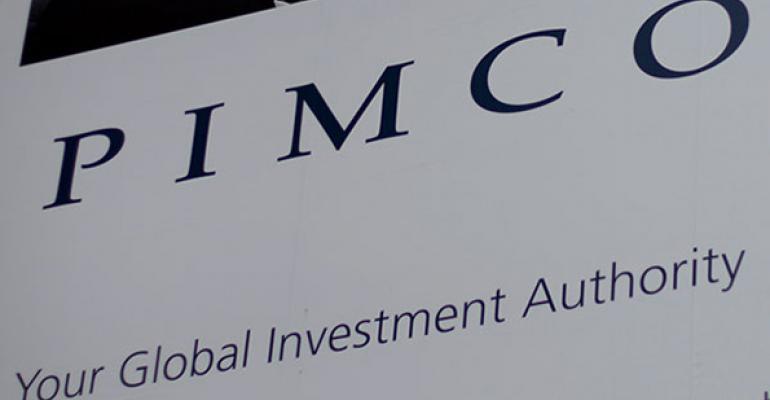By Lisa Abramowicz
(Bloomberg Gadfly) --When times get tough, it helps to have a recognizable friend who can lend a hand.
In a way, that's what some of the biggest bond managers are doing to survive in a lower-fee world of index-based investing. Rather than simply lowering fees, some are looking to pair up with respected names in the industry to provide more creative offerings.
Consider Pimco, for example, the asset manager that ballooned during a 30-year bond bull market but has shrunk to $1.55 trillion under management from $2 trillion in 2013. It just announced that it's teaming up with Solar Capital Partners, which focuses on harder-to-access private debt investments. Pimco already has a relationship with Solar, but this joint venture would expand the firm's alternative fund offerings.
Or Oaktree Capital, the distressed-debt behemoth that was co-founded by Howard Marks. It acquired a 20 percent stake in Jeffrey Gundlach's DoubleLine Capital in 2009, an investment that has proved to be phenomenally lucrative, and it's thinking about deepening its relationship.
At a Goldman Sachs financial services conference Wednesday, Marks was asked whether he planned to work more closely with DoubleLine in the future. He responded by saying the two firms may be interested in some joint investment products.
“At some point in time, there might be a desire to have an expanded global credit fund that includes high grades and mortgages and things like that, and I think it’s safe to say we know where we could get that,” he said.
DoubleLine's Gundlach is known for his accurate market calls and is thought of as a dominant firm in the broad-market bond fund industry.
To be clear, the specific situations of these large debt-focused firms differ. Oaktree and DoubleLine, for example, are expanding rapidly while Pimco has contracted after the exit of its famous manager, Bill Gross. Meanwhile, Solar Capital has been around for more than a decade but doesn't have the same name recognition as the others.
Still, these asset managers may end up making similar moves in one respect: They're looking to bring together broad public market strategies with managers who focus on more esoteric, harder-to-access opportunities. This is a mix that's difficult for index strategies to replicate. And it's the type of fund that can justify bigger fees.
After all, investors have been gravitating toward private equity and credit funds this year, despite their expense, while reducing allocations to actively managed mutual and hedge funds. And those investors generally seemed pleased with their decision; 89 percent of institutions surveyed by Preqin this year said their private-equity investments performed at or above investors' expectations over the past 12 months.
Many investment firms, including the father of indexing strategies, Vanguard, think that actively managed debt funds will most likely demonstrate reliably superior returns. Perhaps so, but superior performance itself isn't always enough as a fundraising tool, especially if it's only by a percentage point or two. They need to bring something unique to the table, and the pairing of public and private debt strategies can give them the edge they need over the indexing crowd, with a little help from a friend.
This column does not necessarily reflect the opinion of Bloomberg LP and its owners.
Lisa Abramowicz is a Bloomberg Gadfly columnist covering the debt markets. She has written about debt markets for Bloomberg News since 2010.
To contact the author of this story: Lisa Abramowicz in New York at [email protected] To contact the editor responsible for this story: Daniel Niemi at [email protected]

